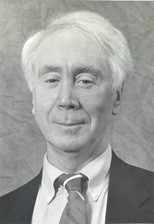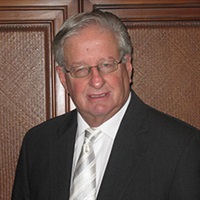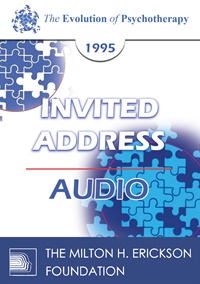EP95 Invited Address 05b - Can Psychotherapy Be Brief, Focused, Solution-Oriented and Yet Comprehensive: An Evolutionary Perspective - Arnold A Lazarus, PhD
- Average Rating:
- Not yet rated
- Topic Areas:
- Invited Addresses | Psychotherapy | Solution Oriented Approach | Brief Therapy
- Categories:
- Evolution of Psychotherapy | Evolution of Psychotherapy 1995
- Faculty:
- Arnold Lazarus, Ph.D. | Donald Meichenbaum, PhD
- Duration:
- 1 Hour 23 Minutes
- Format:
- Audio Only
- Original Program Date:
- Dec 14, 1995
- License:
- Never Expires.
Description
Description:
Anyone can perform brief or short-term therapy, but unless pivotal issues are addressed, the treatment will, at best, be too narrow and restricted. It is essential to employ empirically established methods whenever possible, but also to have a framework and rationale for on-the-spot inventiveness. This Invited Address will explain how to be precise and targeted while also ensuring that interactive healing processes are put into effect.
Educational Objectives:
- To describe specific treatments of choice.
- To provide a framework for thorough assessment.
- To tie the selection of techniques to an empirical foundation.
*Sessions may be edited for content and to preserve confidentiality*
Credits
Faculty

Arnold Lazarus, Ph.D. Related Seminars and Products
Arnold A. Lazarus, Ph.D., was Distinguished Professor at the Graduate School of Applied and Professional Psychology at Rutgers University. Lazarus served on the editorial boards of ten professional journals. He was president of the Association for Advancement of Behavior Therapy and received the Distinguished Service to The Profession of Psychology Award from the American Board of Professional Psychology. His Ph.D. was granted in 1960 from the University of the Witwatersrand, Johannesburg, South Africa. He has authored four books; co-authored, edited, or co-edited seven; and authoered or co-authoered more than 150 professional papers and chapters.

Donald Meichenbaum, PhD Related Seminars and Products
Donald Meichenbaum, Ph.D in Clinical Psychology is currently Research Director of Melissa Institute for Violence Prevention, Miami (melissainstitute.org). He is one of the founders of cognitive behavior therapy. He was voted one of the most influential psychotherapists of the 20th century. Latest books include "Roadmap to Resilience" (www.roadmaptoresilience.com) and "Evolution of Cognitive Behavior Therapy: A Personal and Professional Journey."


